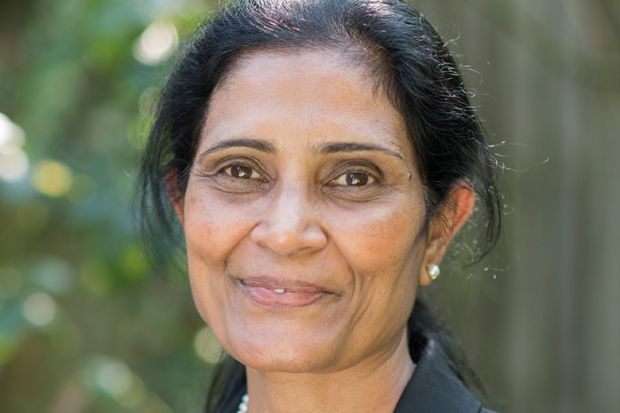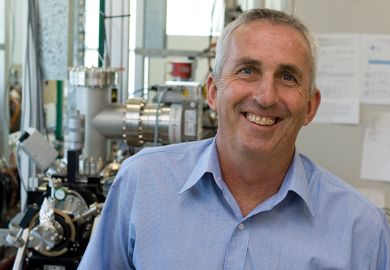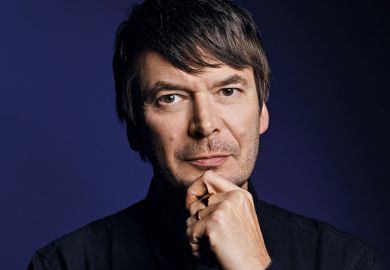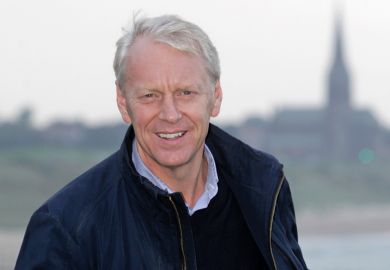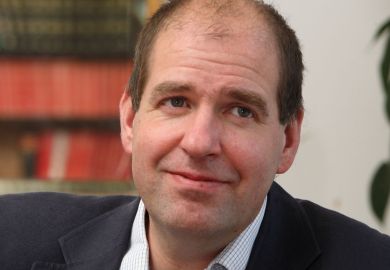Nirmala Rao is a political scientist and former pro-director of Soas, University of London. As an expert on urban governance, she has extensive experience of public service and has served as an adviser to a range of bodies including the UK Audit Commission and the government of India. In February 2017, she will take over as vice-chancellor of the Asian University for Women (AUW) in Bangladesh.
Where and when were you born?
Born in Hyderabad, southern India, 1959.
How has this shaped you?
Although I was raised in a very traditional South Indian culture at a time when gender roles were unambiguously defined and limits set on women’s aspirations, I had the opportunity to study at top Indian universities, an education that transformed my life considerably. Growing up there helped me develop my personality as well as my work ethic and assisted me enormously to come to terms with my transition to the UK.
You’re returning to Asia after a long while in UK higher education. How do you think the experiences will compare?
The growing demand for higher education and the scale of planned reforms over the next decade in Asia are set to provide huge opportunities for international higher education institutions. Expansion, excellence, quality assurance and international collaboration are the emerging themes, and UK institutions are relentlessly being advised to adopt flexible and creative approaches to make the most of available opportunities. My experience of serving in British universities for more than two decades and my involvement with the UK-India [higher education] leadership programme for several years have enhanced my knowledge of, and engagement with, the sector in both countries – skills and expertise that are relevant for higher education institutions in both parts of the world.
What are your ambitions for the AUW?
To cultivate a cohort of empathetic and confident female leaders who will take action to make positive change in their own countries and around the world. Our goal is to grow our student body from 600 students enrolled in 2016 to 3,000 over time. Imagine the positive influence that 3,000 global change-makers will have on so many individuals and the world.
We have seen the rise of Asian universities in East Asia, but universities from India and Pakistan are not as well represented in world university rankings, and Bangladesh has none. Is this a symptom of these countries’ social and economic situations – that investment in higher education is less of a priority?
The investment in higher education in developing countries has been deemed by the World Bank as central for development. I couldn’t agree more. Universities, like the AUW, are working to cultivate a labour force that recognises the need to use their education to effect change within their regions and countries. Investing in higher education could be one of the most important rallying cries of our time.
Do you think there should be more women-only institutions in the world?
Yes. In regions where gender inequality remains a dominant issue, it is important to create a safe haven where women can feel free to concentrate on learning and socialising, not worrying about who’s watching them do what, when and how.
What are the benefits of a women-only institution?
An obvious benefit is that it supports women’s leadership. It is a refuge, a thinktank, allowing students to hone their inherent leadership skills that are still not widely recognised in our many male-dominated societies. Students can freely discuss the obstacles and challenges facing women across the world and share ideas on how to redirect the course for women. In the US, where there are many more female-only colleges, it is widely acknowledged that these institutions “serve as supportive social and academic systems, allowing scholars to explore their full potential without the worry of gender bias”. An all-women’s university also gives parents of girls who would like to attend university the comfort and ease of knowing she will be at an institution with only women. These are genuine issues for many communities in South and South-east Asia.
Have you had a eureka moment?
During my spiritual journey on foot at 20,000ft in the Himalayas: the impermanence of life, and the realisation that the only sensible way to live is to take what comes our way without regret.
If you weren’t an academic, what do you think you’d be doing?
An advocate for human rights, women’s rights and the right to education.
What is the biggest misconception about your field of study?
That the general public is uninformed, unreflective and impulsive, and base their decisions on irrational or biased beliefs: the “knowledge deficit problem”. The presumption is that if the public really understood the problem and solution, they would agree with the course of action and public policy will produce the desirable outcome.
What keeps you awake at night?
Being alone.
What kind of undergraduate were you?
Quirky and passionate.
What’s your most memorable moment at university?
Being asked by the president of the students’ union to accompany him to watch One Flew over the Cuckoo’s Nest!
What are the best and worst things about your job?
The opportunity to influence and shape the quality of learning and teaching. The worst? Takes years of debates and deliberations to bring about change.
Appointments
Simon Ofield-Kerr has been named the University of the Arts London’s new deputy vice-chancellor (academic). Professor Ofield-Kerr, currently vice-chancellor of the University for the Creative Arts, will start at UAL in January 2017. In his five years at the UCA, he extended the institution’s international partnerships and substantially improved the student experience. “UAL is more than a university and has huge influence as an international cultural institution, with a transformative role within and beyond the creative economy,” he said. “I am excited to be joining…and look forward to working with colleagues to fully realise UAL’s incredible potential.”
Alison McCleery has taken up the leadership of the Scottish Graduate School of Social Science, incorporating the Economic and Social Research Council Doctoral Training Centre for Scotland, based at the University of Edinburgh. Recently appointed deputy director, a role that she combined with a professorship at Edinburgh Napier University’s business school, she now takes over as director for the DTC’s final year. Professor McCleery, who also chairs the UK Research and Enterprise Network for Universities, will continue to combine her SGSSS responsibilities with her Edinburgh Napier research portfolio. “It is a huge honour both for me and for my institution to lead this prestigious cross-Scotland graduate school,” she said.
Robert Gordon University has appointed Amanda Croft, executive director of nursing, midwifery and allied health professions at NHS Grampian, as visiting professor at its School of Nursing and Midwifery.
Richard Bienfait has been named chief financial officer of University Partnerships Programme (UPP) Group. He took up his position in October.
George Baxter has begun his new role as chief executive officer at Edinburgh Research and Innovation, the University of Edinburgh’s office for research, commercialisation and entrepreneurship.
POSTSCRIPT:
Print headline: HE & me
Register to continue
Why register?
- Registration is free and only takes a moment
- Once registered, you can read 3 articles a month
- Sign up for our newsletter
Subscribe
Or subscribe for unlimited access to:
- Unlimited access to news, views, insights & reviews
- Digital editions
- Digital access to THE’s university and college rankings analysis
Already registered or a current subscriber?
